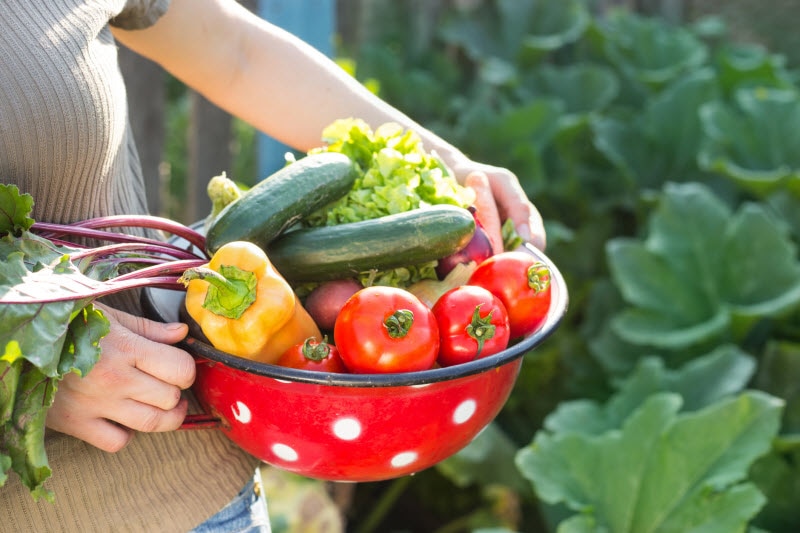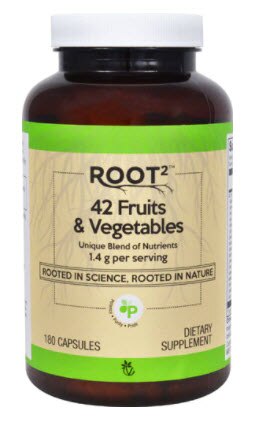Keeping our immune systems healthy and strong has been top of mind for many of us this year. Besides taking care by eating better, taking immune health supplements, getting enough sleep and managing stress – what else can we do? Here’s an idea that’s popped up in backyards all around the globe this summer. Why not plant an immunity garden?
What is an immunity garden?
While a typical garden might include flowers, vegetables and herbs that beautify your landscape and enhance your healthy diet, an immunity garden is designed specifically with plants, veggie and herbs known for bolstering the immune system.
Why plant an immunity garden?
Immunity gardens have gained momentum recently because they’re great for both our physical and mental health. They’re:
- Simple to plant, and they don’t require much space.
- A source of fresh and delicious ingredients that support your immune system.
- A great way to spend time outside in the fresh air – which boosts mental health, too!
What to plant in an immunity garden
The key here is efficiency. Whether you have access to a backyard, a shared community garden or even a small balcony – planting specific, nutrient-packed veggies will maximize your health benefits.
A great way to begin is to plant based on the rainbow:
- Red: Tomatoes
- Orange: Squash
- Yellow: Peppers
- Green: Broccoli
- Blue/Indigo/Violet: Purple potatoes
- ‘Pot of gold’ – herbs: Garlic, echinacea, basil, thyme, oregano and lavender
How to plant a garden for immune health
Good food is the foundation of good health. By incorporating fresh, nutrient-packed, home-grown produce into your diet, you’ll not only eat more optimally, you’ll reap the many benefits these foods offer for your overall health.
Tomatoes
No produce captures summer quite like ripe red tomatoes on the vine. Beyond paring perfectly with basil (more on this herb below!), tomatoes are known for their high concentration of:
- Antioxidants – like heart-healthy lycopene and inflammation-busting anthocyanins
- Vitamin C – also an antioxidant that protects against oxidative stress with wound-healing, skin-supporting and other benefits
Squash
Think ahead to all the hearty, comforting dishes you’ll be able to make this fall with a harvest of winter squash! Keep in mind that squash is loaded with:
- Alpha-carotene and beta-carotene – both of which get converted to vitamin A to protect health and help to keep your eyes, skin and mucous membranes healthy
- Vitamin C and minerals – like potassium (which helps to regulate fluid balance, along with promoting proper nerve and muscle-functioning) and magnesium (which supports bone health)
- Fiber – helps bolster digestive health and control blood sugar levels
Peppers
Crunchy and flavorful, peppers – especially yellow peppers – are packed with anti-inflammatory and brain brain-boosting vitamins such as:
- Vitamin B6 – promotes proper cell functioning in the central nervous system, and metabolism. It may also improve memory function and mood.
- Vitamin B9 – also known as folic acid or folate, this vitamin promotes proper red blood cell formation for healthy cell growth and functioning
- Carotenoids – these powerful pigments are antioxidants and anti-inflammatory agents
Broccoli
Among the most powerfully nutritious vegetables, broccoli can be snacked on raw or in salads or cooked and enjoyed in endless dishes. With broccoli, you’ll get:
- Fiber – for healthy digestion and more
- Antioxidants – to protect cells throughout your entire body from free radical damage
- Vitamins A, C and E – vitamin E is an immune system key play that also helps to maintain the integrity of cell membranes
- Sulforaphane – helps to protect heart health, aids in digestion and more
Purple potatoes
A little bit of comfort, a little bit of magic (because, well, they’re purple!), these potatoes are not only delicious and fun to eat, they offer great nutrition benefits, including:
- Vitamin C – an immune health superstar antioxidant
- Carotenoids – antioxidant (cell-protective) plant compounds
- Polyphenols – antioxidant (cell-protective) plant compounds
- Selenium – a trace mineral that helps to lower oxidative stress and reduce inflammation
- Resistant starches – improve insulin sensitivity and provide digestive health benefits
Herbs
Garlic
Known for soothing and staving off colds, garlic has long been used for its antiviral and antimicrobial benefits.
Echinacea
This beautiful purple bloom has been used in herbal medicine practices for centuries, and many people swear by it to help shorten the duration of – and even prevent – the common cold.
Basil
One of the most commonly used herbs, basil offers a lovely scent and flavor while also helping to counteract stress and support mood – which may positively impact the immune system.
Thyme
Every cozy kitchen smells a little like thyme, but beyond nostalgia, this herb is an excellent way to get more essential minerals and vitamins A and C into your diet.
Oregano
An herb that adds depth to dishes, oregano also delivers notable benefits, thanks to its natural antibacterial properties, antioxidants and powerful phytonutrients.
Lavender
Not only will this herb add a pop of color to your garden, but its natural scent is known to be calming, helping to improve mood and promote deeper sleep – all of which bolster the immune system.


